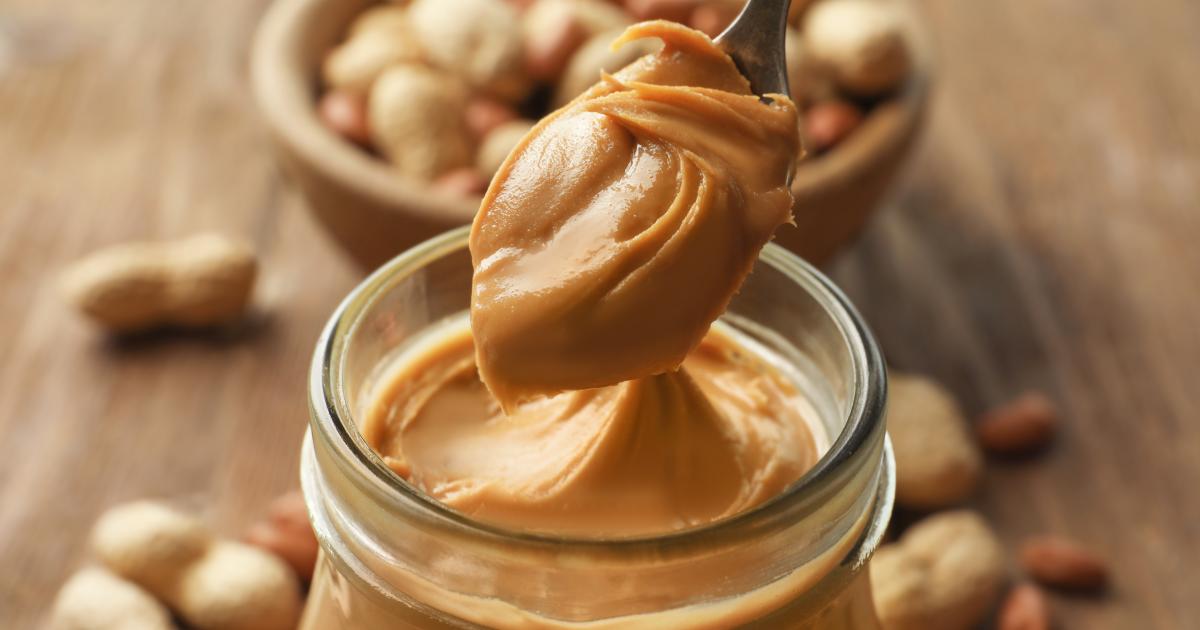
Suggested video What products are in season in February?
Video 1 of 2
Peanut butter is much more than a spread to spread on your toast. The latter is also a very popular accompaniment for its nutritional qualities. Here are 10 benefits of this preparation, which is particularly popular in North America and the Netherlands.
Peanut butter is a treasure trove of essential nutrients. This offers a range of considerable minerals, including magnesium, iron and zinc, as well as copper. It is also a valuable source of B vitamins and vitamin E.
The fats found in peanut butter are primarily unsaturated fats, such as monounsaturated and polyunsaturated fatty acids, which are beneficial for cardiovascular health. This spread is also rich in oleic acid. This substance is particularly known for promoting better insulin sensitivity. One tablespoon of peanut butter provides about 10% of the recommended daily intake of saturated fat for an adult.
Peanut butter is an important source of plant-based protein. With a similar amount of protein to animal sources, this product allows vegetarians and vegans to meet their daily protein needs.
Peanut butter contains dietary fiber which aids in healthy digestion and contributes to a feeling of fullness. If peanut butter is made from peanuts with their skins, each tablespoon contains about 1.3 g of fiber, compared to 0.98 g to 1.1 g for peanut butter without skins.
With its balanced combination of proteins, fats and carbohydrates, peanut butter provides a stable source of energyideal for maintaining your energy level throughout the day.
Due to its caloric density, a small serving of peanut butter can provide a healthy dose of energy. Eating peanut butter can be useful and advisable for people with poor appetite or who are malnourished. With 9 kcal per gram, it provides more calories than other common foods like milk, soy and cereals.
Thanks to its protein and fat content,peanut butter has a low glycemic valuemeaning it releases glucose slowly into the blood and helps stabilize blood sugar levels.
Peanut butter is abundant in plant compounds. These offer antioxidant protection, notably thanks to p-coumaric acid and resveratrol. According to studies on rodents, plant compounds reduce heart disease and arthritis.
The plant stanols and sterols found in peanut butter may help reduce blood cholesterol levels. These can also limit the onset of heart disease.
Source:https://www.750g.com/voici-10-bonnes-raisons-de-mettre-du-beurre-de-cacahuete-dans-son-assiette-a36587.htm


